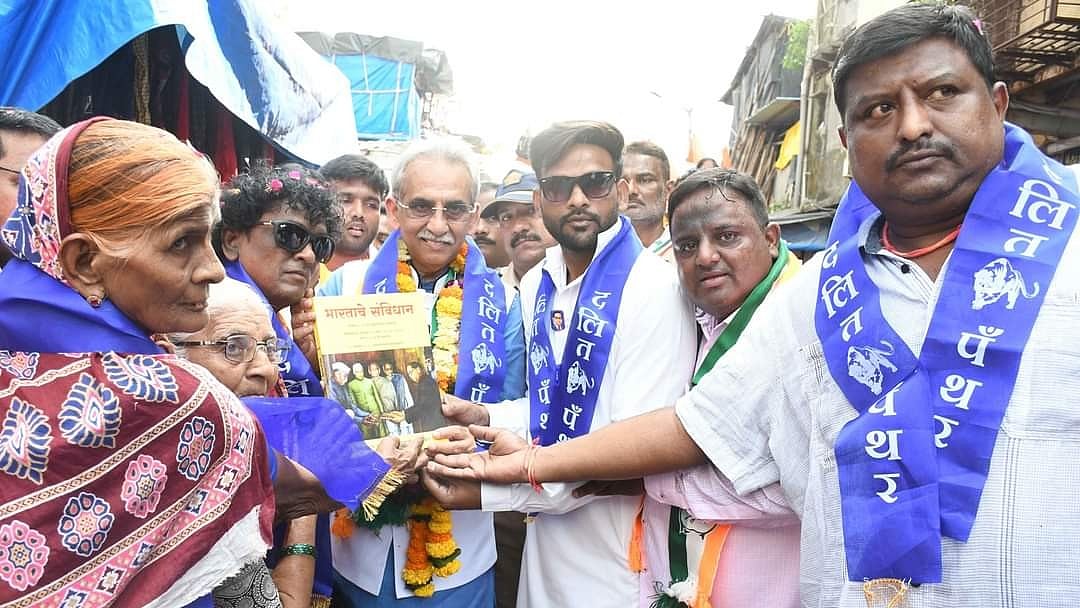The anguish expressed by the Madras High Court on the way elections were conducted in Tamil Nadu and elsewhere in the country might not have found a clear reflection in the written order given to the Election Commission. This is because a judge’s obiter dicta, delivered on the spur of the moment, is different from his considered opinion, expressed or dictated in the form of an order. Both need to be given due weightage, though only the signed order is enforceable. Seen against this backdrop, the comments and the orders given by the two-member Bench on Monday have national significance.
The court cannot be faulted if it thinks that the recent elections in Tamil Nadu, Kerala, West Bengal, Assam and Puducherry have enormously contributed to the sudden surge in Covid-19 cases. Innumerable videos and photographs of the election rallies conducted in these states and Union Territory prove beyond a shadow of doubt that Covid protocols were not followed anywhere. The Election Commission is invested with all kinds of powers to ensure that elections are conducted in an orderly, free and fair manner, of course, in accordance with the extraordinary health situation in the country.
Far from doing that, the commission seemed to function like an adjunct of the government. Its singular decision to hold elections in West Bengal in eight phases and in Assam in three phases, unlike Kerala, Tamil Nadu and Puducherry where polling was held on a single day, stretched the electoral process by more than a month. Of course, the political class, especially the one itching to have West Bengal under its control, wanted so many phases to accommodate the itinerary of its leaders but the commission was under no compulsion to give such considerations while drawing up the electoral plan. In the end, it became worthy of the charge that it acted like a handmaiden of the ruling party.
The tough stance of the court had a salutary effect on the commission, which has now ordered that no victory rallies would be allowed either on the counting day or the days after. If anything, it shows that the commission has the power to declare a candidate’s election null and void if he violates its order. A stern warning with summary and salutary action would have been sufficient to enforce the Covid protocols. Alas, it adopted the policy of least resistance! It would have been in the fitness of things if the high court had directed its ire at the political class also, not just the Election Commission.
Political leaders, including the Prime Minister and the Union home minister, who were the star campaigners, showed scant regard for the protocols they themselves have been mouthing from time to time. They are also the ones who allowed super-spreader religious events to be held. A sharp judicial rap on their knuckles would have been in order. However welcome such rebukes may be, they are not a licence for the government agencies to trample upon civil liberties.
The horrors of the nationwide lockdown, enforced last year without advance notice either to the people or the state governments, are too fresh in the minds of the people to merit recounting. It is a common phenomenon for the governments the world over to take undue advantage of the Covid situation to enforce draconian provisions. It was under the cover of curtailed Parliament sessions that the controversial agricultural laws were enacted and enforced, causing a nationwide protest by the farmers.
Even now, lockdown-like situations prevail in many cities and states but the governments concerned have fought shy of meeting the day-to-day needs of those who have lost their daily wages and have no social security systems to fall back upon. Intolerance of the kind reflected in the treatment being meted out to journalist Siddique Kappan, a Covid patient, allegedly chained to his hospital bed, does not redound to the credit of the largest democracy in the world.
There has been a blurring of the traditional separation of powers under which the legislature is the primary law maker, the executive the enforcer of laws and the judiciary the interpreter of laws. The lockdown saw the apex court refusing to hear the genuine pleas of the migrant labour. This time round, 100 rooms in the government-owned seven-star Ashoka Hotel have been earmarked for treating judges and their family members falling victim to coronavirus. These tendencies, too, need to be deprecated, like the Election Commission’s follies.










